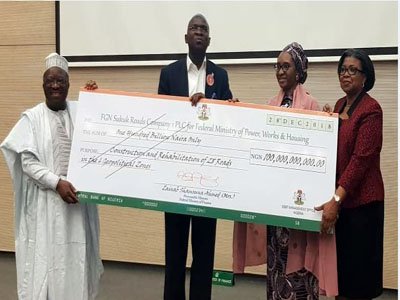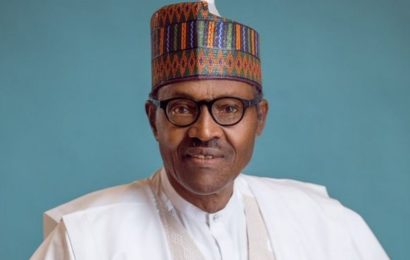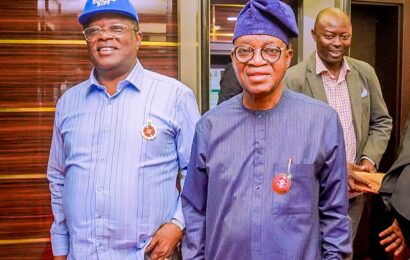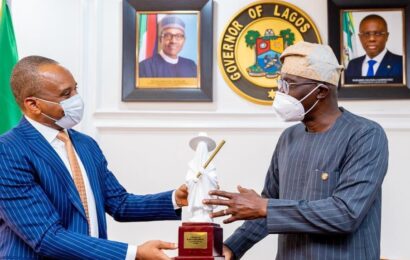
The N100 billion Sovereign Sukuk bonds proceeds will be used to construct 642.69km roads across Nigeria, Minister of Power, Works & Housing Babatunde Fashola, said at the presentation of the cheque by Finance Minister Mrs. Zainab Ahmed, in Abuja on Thursday.
According to Fashola, the money has been shared equally among the six geo-political zones, with each region having N16.67 billion for the number of roads to be completed in its jurisdiction.
Six roads will be constructed in the Northcentral, five in the Northeast, four in the Northwest, four in the Southeast, six in the Southsouth and three in the Southwest.
Some of the road projects are: Dualisation of Abuja – Abaji – Lokoja Road: Section I (International Airport Link Road Junction-Sheda Village Junction) in FCT Contract No.5862.
Fashola explained: “Specifically, it will be wearing course, reconstruction of existing carriageway, stone pitching, kerbs, drainage and outstanding variations (NGN464, 806,419.09) to be handled by Dantata & Sawoe Construction Company Nigeria Limited (Northcentral).
“For the Northeast, the dualisation of Kano-Maiduguri Road, linking Kano-Jigawa-Bauchi-Yobe and Borno states Section III (Azare-Potiskum), in Bauchi State, Contract No.5880 will be handled by Mothercat Limited.
“The project will cover wearing course, pipe culverst, trapezoidal and rectangular drains, new jersey barrier, bridge works, 4-way cable duct, road furniture and protection works.
“For the Southeast, it will be the rehabilitation and reconstruction of Enugu-Port Harcourt Dual Carriageway Section II: Umuahia Tower-Aba Township Rail/Road Bridge Crossing (CH. 120+500-CH. 176+600) in Abia State Contract No.6209 to be handled by Arab Contractor Nigeria Limited. The job entails laterite fill, laterite sub-base, sand/cement base, crushed rock base, wearing course, asphaltic binder course, asphaltic wearing cource and concrete median.
“In the Southsouth, the dualisation of Yenegoa Road Junction – Kolo – Otuoke – Bayelsa Palm (20km) in Bayelsa State with contract No.6248, will be handled by CCECC Nigeria Limited for the Excavation of unsuitable materials, construction of pipe culverts, stone pitching, median kerbs, sand-cement base, stone base course, binder course and wearing course.
“In the Southwest, there is the dualisation of Ibadan – Ilorin Rd (Route No. 2) Section II: Oyo-Ogbomoso Road, in Oyo State with contract No.1793A with Reynolds Construction Company (Nig) Limited as the contractor for site clearance, earthworks, filter/underground drain layer, concrete side drain, sub base, stone base, binder course, 1000mm diameter piles, concrete foundation and pile cap, concrete piers, concrete abutment, concrete beams of superstructure and installation of bearings on piers.”
The minister said that the impact of the Sukuk bond would be on nation building through job creation, growth and employment.
The Federal Government contractors will be the first beneficiaries of the funds, which would in turn, trickle down to suppliers of building materials, artisans, miners and steel companies.
The proceeds will be disbursed on the construction and rehabilitation of 28 key economic roads captured in last year’s budget.
Speaking at the presentation, Mrs. Ahmed noted: “The funds will be released to the Federal Ministry of Power, Works & Housing based on the framework agreed with the Trustees in order to ensure transparency and accountability in the use of proceeds.”
She identified the Sukuk funding option as part of the initiatives of the government to “diversify government funding sources while also deepening the Nigerian capital market, mobilising more savings and promoting financial inclusion.”
The roads to be funded with the Sovereign Sukuk Fund, the Finance minister said, “will ease commuting, spur economic activities across the country and further close our infrastructural gap”.
Corroborating the Finance minister, Fashola said: “Roads are coming; these are assets that would enable business, that would enable transportation, movement of goods and services and assets that will last 25, 30 to 40 years. This is a good investment to make. So, for those who ask why are we borrowing? We are borrowing to build at today’s prices, assets that will last us for another 30 years.”






